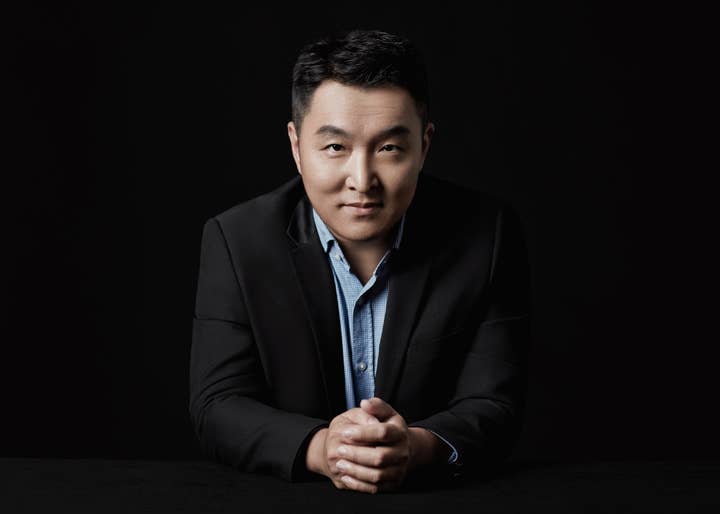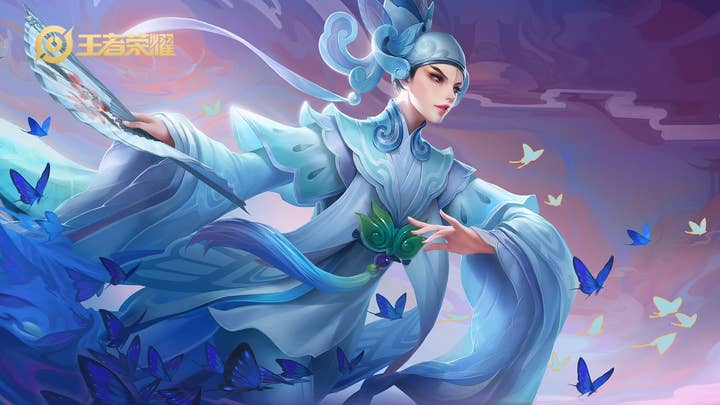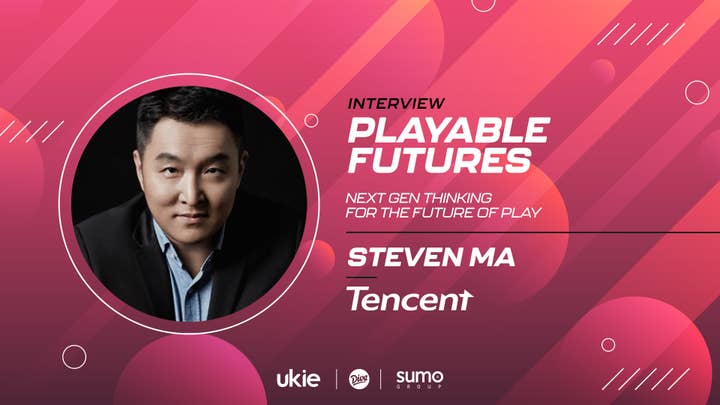Video games' future is more than the Metaverse: Let's talk 'hyper digital reality' | Playable Futures
Tencent's senior vice president Steven Ma considers how the metaverse is but one element of a new future where games transcend their own medium
Playable Futures is a collection of insights, interviews and articles from global games leaders sharing their visions of where the industry will go next. This article series has been brought to you by GamesIndustry.biz, Ukie, Sumo Group and Diva.
It wasn't long ago that video gaming meant playing Pong in an arcade or firing up an eight-bit home console to shoot blocky space invaders.
Today, we play games with 3D graphics at 4K resolution on a PlayStation 5 or Xbox Series X - if you can find one - or on your state-of-the-art smartphone. And increasingly, as hardware specs improve and developers build new content, by slipping on a VR headset and entering a 360-degree virtual world.
Games are created for entertainment, whether they use cards, a board, a smartphone, PC, console, or headset. But a funny thing has happened since the world of gaming moved from analogue to digital, from the real world to virtual ones: never before have so many around the globe been connected with each other. To give you a sense of size and scope, here's but one example: since Tencent Games launched PUBG MOBILE in 2018, players have downloaded the game over 1 billion times. That's roughly one out of every 7.7 people on the planet downloading and playing a single video game with each other on their mobile phones.

And daily, some 50 million players from dozens of countries, including the UK, US, Brazil and more team up in PUBG MOBILE to accomplish their mission. So, it occurs to me, as the head of Tencent Games - the world's largest games platform company by many measures - that it's time for game developers to accomplish ours.
Impact Beyond Revenue
We could savour the popularity of our many great games and the revenue they bring in. But that would squander a much-bigger opportunity to make the world we live in better. Startup founders and executives often wave the wand about greater purpose and altruism, but we all know the real magic is in action and results.
The games sector has reached an inflection point. For a company like Tencent, we believe that when you have such a large, engaged global audience, it comes with many responsibilities. While we will continue to lead the way with advances in technology and player experience, we must apply them to the needs of broader society. And keeping the global community in mind is very much in line with Tencent's overall mission statement: "value for users, tech for good."
"We think it's on us and other creators of groundbreaking technology to tackle real-world issues"
I love music and culture. I was recently reminded of how games can play a role in promoting and preserving both when my country's most-popular game -- Honor of Kings -- produced a new in-game skin inspired by traditional Chinese Yue Opera. Attendance at live performances has, sadly, dwindled in recent years. Imagine my surprise, though, when I found some 80 million players have used the skin, exposing them to the genre and its characters and generating renewed interest in what previously looked to be a dying art form.
To extend this further, we think it's on us and other creators of new and groundbreaking technology to tackle real-world issues.
A Powerful Medium
For example, using video games and technology to help deliver better results in education. Starting in 2018, Tencent got serious about Serious Games, publishing ones that taught users typing and geometry at their own pace - and in a fun and engaging way. A year later, we demonstrated our technological prowess, both with a game that enabled the visually impaired to play, and another that allowed the visually unimpaired to experience the world without full eyesight.
Then, last year, I was excited to hear about the 'MindPod,' a gaming experience aimed at helping repair the brains of stroke victims from MindMaze Healthcare. Motion-sensitive cameras track the arm movements of stroke patients as they guide an onscreen dolphin over a floor-to-ceiling screen to catch fish. The actions supposedly gave a "jolt" to the players' brains, enabling them to recover some of their mobility. And it's more than just a good idea. I saw the game is being put to practical use in the UK's Royal Buckinghamshire Hospital.
Our responsibility as a leading game platform also means ensuring a healthy environment for all, with a special focus on our younger players. As such, Tencent is involved in several programs, including the #WePROTECT Global Alliance, which aims to provide a safer and more secure internet for children and adolescents.

Though I marvel at how technology - the hardware, software, connectivity, coding, and more - has fundamentally changed the way we play and engage with each other, we should bear in mind gaming is not all about technology.
Blending Experiences
This brings us to the metaverse and what it means to Tencent and the entire game sector. For us, it is but one iteration of many versions of what we refer to as 'Hyper Digital Reality' in our present and future. In fact, some of the gametech examples above show how we and others are already integrating the real and virtual worlds.
We see this kind of blended experience in esports, where arenas worldwide are filled with fans cheering on teams playing a digital sport, while millions more watch livestreams remotely and interact with each other via online chat and social platforms. And, as the world found itself highly restricted from live performances last year, millions of players of Fortnite were treated to an interactive, in-game Ariana Grande musical tour, just the latest demonstration of Hyper Digital Reality by Epic Games.
"The metaverse's day will come. That day is just not today"
We see that some pioneers have begun to realise their vision with a purpose-built metaverse of their own, migrating their content and audience to a pre-formed digital destination. Our approach is different. We are a technology company. But drill into us, and at our core, you will also find a content- and experience-driven company. We believe in using technology to push the limits of great content, enabling and creating new experiences for our community.
What I'm saying is the metaverse's day will come. That day is just not today. And also keep your eyes on the content and user experience. Don't focus on the platform or the means to access it. What we see today is indeed a leap from what we had just a few years ago. But it's also still primitive, experimental, and because of technological momentum, going to change and improve rapidly, as all digital platforms and hardware have over the past four decades.
I'm not sure exactly where gaming is heading. However, I do know that when your VR headset hiccups or your screen drops frames or freezes, that's a reminder it is still in its infancy. And as far as we've already come, technologically, experientially and otherwise, what excites me is I am 100% sure that the best in game content, experience and technology is still ahead of us.
Mr. Ma is the Tencent senior vice president responsible for publishing and operations of licensed games, the QQGame platform, QTalk, and back-end R&D, along with Tencent Games' global business development and investment initiatives.
